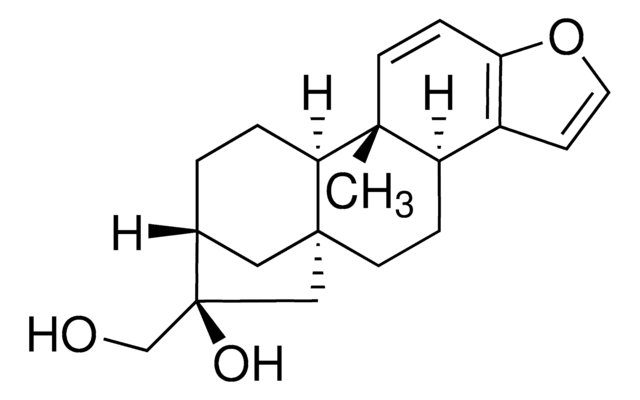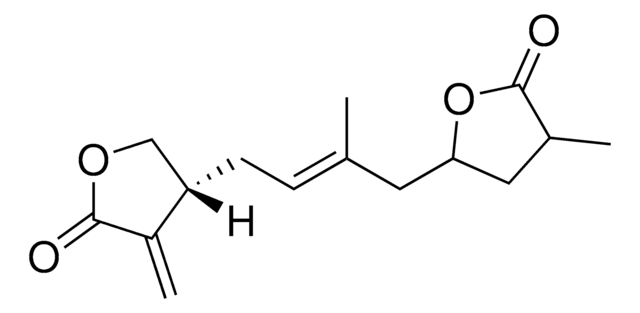About This Item
Recommended Products
Quality Level
Assay
≥98%
form
powder
technique(s)
HPLC: suitable
color
white to off-white
storage temp.
2-8°C
SMILES string
CC(=O)OCC1(O)CC23CCC4c5ccoc5CCC4(C)C2CCC1C3
InChI
1S/C22H30O4/c1-14(23)26-13-22(24)12-21-9-5-17-16-7-10-25-18(16)6-8-20(17,2)19(21)4-3-15(22)11-21/h7,10,15,17,19,24H,3-6,8-9,11-13H2,1-2H3
InChI key
PTGGVIKFNQSFBY-UHFFFAOYSA-N
Application
Biochem/physiol Actions
Other Notes
Storage Class Code
11 - Combustible Solids
WGK
WGK 3
Flash Point(F)
Not applicable
Flash Point(C)
Not applicable
Personal Protective Equipment
Certificates of Analysis (COA)
Search for Certificates of Analysis (COA) by entering the products Lot/Batch Number. Lot and Batch Numbers can be found on a product’s label following the words ‘Lot’ or ‘Batch’.
Already Own This Product?
Find documentation for the products that you have recently purchased in the Document Library.
Our team of scientists has experience in all areas of research including Life Science, Material Science, Chemical Synthesis, Chromatography, Analytical and many others.
Contact Technical Service



